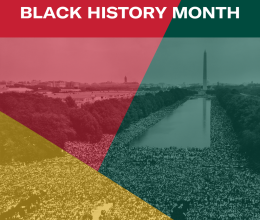
Carol Rose, executive director of the ACLU of Massachusetts, today released the following statement in response to the U.S. Supreme Court decision in Husted v. A Philip Randolph Institute:
“The fight for voting rights remains as critical as ever, and this ruling is a setback for voters trying to exercise a fundamental right. As Justice Sotomayor notes in dissent, today’s decision highlights the ever-important role of state courts and state lawmakers in protecting the right to vote.
“In Massachusetts, our state constitution protects the right to vote. That’s why we challenged Massachusetts’ arbitrary voter registration deadline in Chelsea Collaborative v. Galvin. If the Massachusetts Supreme Judicial Court upholds the Superior Court’s decision striking down the deadline, thousands more people in Massachusetts will be expected to vote in every election. The ACLU of Massachusetts will continue to work in the courts, in the State House, and in communities to promote access to the ballot and protect the freedom to vote.”
Background: The Husted v. A. Philip Randolph Institute case challenges Ohio’s practice of purging voters who fail to vote in two consecutive federal elections—even if they have not moved out of state and are still fully eligible to vote.
This practice has had a significant impact on voters: In Cuyahoga County alone, approximately 40,000 individuals were unlawfully purged merely for choosing not to vote, and a disproportionate number of those people came from low-income neighborhoods and communities of color.
The ACLU, ACLU of Ohio, and Demos filed a lawsuit on behalf of the A. Philip Randolph Institute, the Northeast Ohio Coalition for the Homeless, and Larry Harmon, an Ohio resident who was purged from the voter rolls in 2015. The 6th Circuit Court of Appeals found that Ohio was violating the National Voter Registration Act of 1993 and blocked the process, ultimately allowing thousands more Ohio voters to cast a ballot in the November 2016 presidential election.
The state appealed, bringing the case before the U.S. Supreme Court. The Supreme Court today held that Ohio’s process of removing voters does not violate the National Voter Registration Act.
Click here for more information about Husted v. APRI.
Click here for more information about Chelsea Collaborative v. Galvin.





